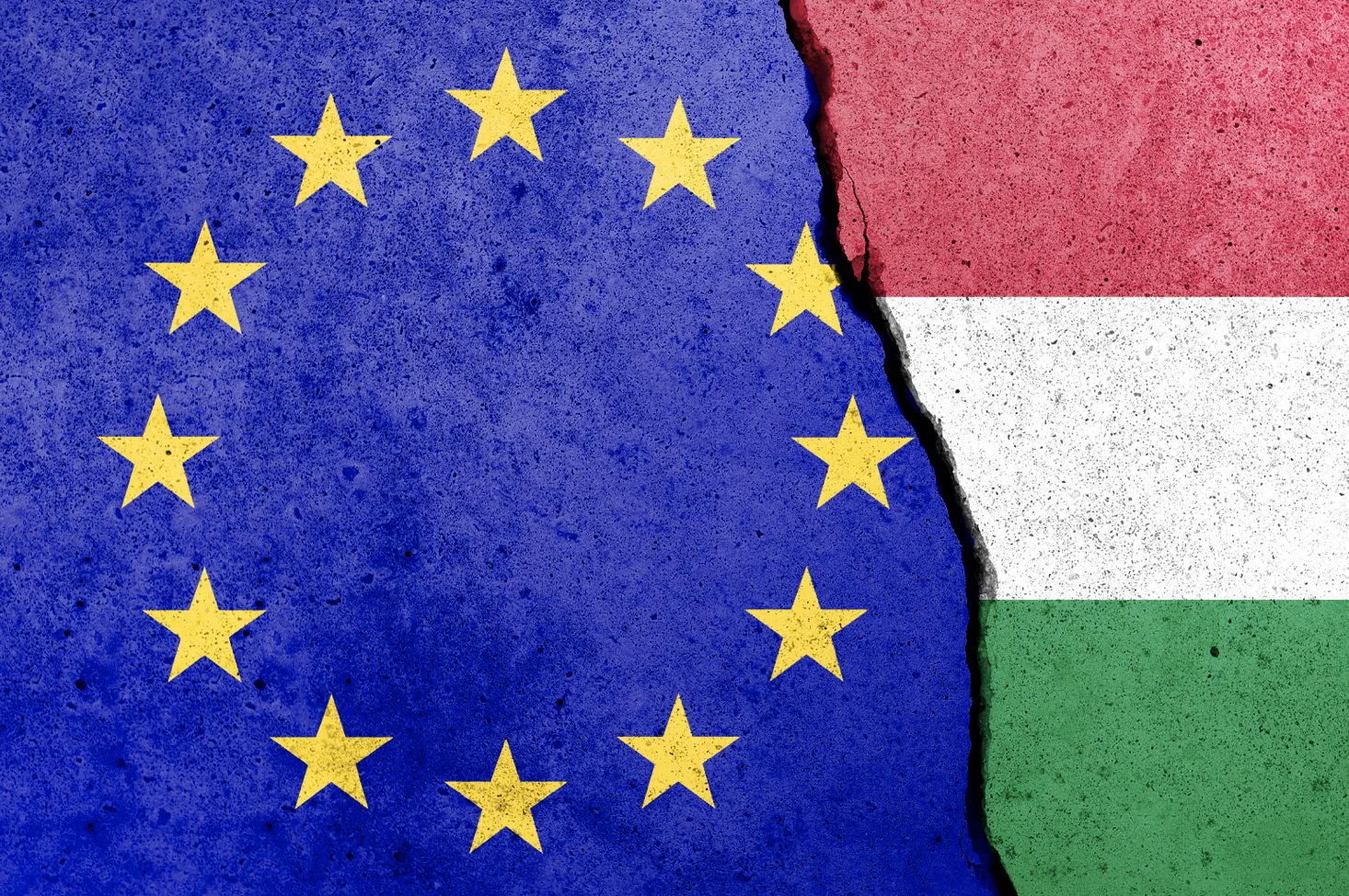Protecting Hungary from Itself: The Limitations of Forcing Compliance

Disclaimer: Opinions expressed in this commentary are those of the author and do not necessarily represent the institutional position of International IDEA, its Board of Advisers or its Council of Member States.
All eyes are on the European Council and Commission as their long-running dispute with Hungary over frozen EU funds nears its ostensible conclusion, with both the credibility of the European Union and the future of Hungarian democracy at stake. The core question is whether the European Union has the legal power and political will to force Hungary to adhere to its rule of law commitments, or whether Viktor Orbán’s government can once more horse trade or game its way out of full compliance.
The dispute began in May 2021, when the EU refused to pay Hungary's share out of the Recovery Fund - the European Union's largest-ever stimulus package, which provided financial assistance for member states in the wake of the COVID-19-induced recession. This September the Conditionality Mechanism was used to withhold an additional 7.5 billion euros over concerns about the country's adherence to the rule of law.
A final decision about the funds is expected by March 2023. To gain access to the frozen funds, the Hungarian government must adopt a set of new laws to strengthen the rule of law and combat corruption in Hungary.
On 30 November 2022, the European Commission found that Hungarian action in addressing the EU’s concerns remained insufficient and funds will be further withheld. Two weeks later, however, in exchange for Orbán dropping his vetoes on the question of the Global Minimum Tax or the EU’s Financial Aid for Ukraine, the Committee of the Permanent Representatives of the Governments of the Member States to the European Union (COREPER II) agreed in principle to approve Hungary’s Recovery and Resilience Plan (RRP) and lower the amount of the suspension of the Cohesion Funds to 6.3 billion euros. Although the payments of the funds are still conditional and are withheld until Hungary has completed all anti-corruption and rule of law reforms, the question is for how long.
The Hungarian government is passing laws at an unprecedented speed and several countries urged the Commission to produce a new assessment. Additionally, the lists including the 17 preconditions and 27 ‘super milestones’ could be easily manipulated to appear as if the conditions have been satisfied. Even if Hungary changes its laws every day according to the separate points raised by the EU, it probably will not have a real effect as these laws only target isolated, individual problems but not the issues in their full complexity. With a two-thirds majority in the parliament, there is a risk that Orbán’s government can change such laws once more after receiving the funds. Since the government has already filled the Constitutional Court with its preferred justices years ago, the impact of any minor adjustments Hungary makes in its legal system is questionable.
The context: limitations of EU interventions and forcing compliance
Previously, EU institutions, such as the European Council and Commission, either could not do enough or member states sought political compromises and simply ignored Orbán’s gradual dismantling of democracy. This was meant to change with the introduction of the Conditionality Mechanism.
As the recent decision of COREPER II shows, however, there is a risk that the EU will still prioritize other issues over concerns about the rule of law, thanks to the Council’s voting rules (which require unanimity) and Viktor Orbán’s tactical vetoes.
Consequences?
As of now, conditionality does not seem to be a solution for Hungary. The Viktor Orbán-led coalition, Fidesz-KDNP, was able to build up a democratic façade and gain control over key institutions with seemingly democratic tools, such as lowering the retirement age for judges, amending the constitution several times, and continuously tailoring the electoral law to favour the incumbent. After creating a legal system that locked in its power, Orbán’s regime then built an additional parallel power structure. This alternative infrastructure enables Orbán to maintain his influence even in the event of a possible electoral defeat. This entrenchment of power means new institutions established to meet EU conditions, such as the Integrity Authority and the Anti-Corruption Task Force, are insufficient to reinstate the rule of law. Any anti-corruption program that is not well-insulated from political influence will be ineffective. If the European Union gives in and pays out both funds to Hungary without it implementing complex legal changes, it will call into question the European commitment to supporting the rule of law, anti-corruption efforts, and the whole notion of the Conditionality Mechanism. Moreover, it would set a precedent for other states, sending the message that politics trumps principles.
But even if the Commission understands that rule of law issues in Hungary have much deeper roots, it can be argued that withholding funds is not the best strategy at all. Although the introduction of the Conditionality Mechanism could pressure a clientelist regime like Orbán’s, it may also backfire: with harsher anti-EU rhetoric and the help of a biased media landscape the Hungarian government can easily control the public discourse, weakening any public support for EU interventions. Policymakers in Brussels need to be careful when intervening and keep such repercussions in mind.




